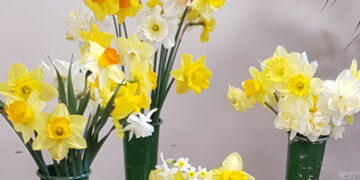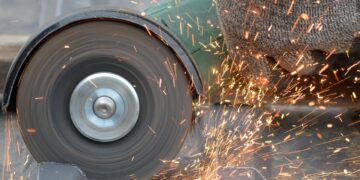Last week, we looked at why eliminating sales of peat is so important, here is what local garden centres and retailers had to say …

We want to see stores stop selling peat and switch to more sustainable composts. To find out what action they were taking, we asked them.
The weakest effort came from Sainsbury’s.
“We continue to offer both peat free compost as well as standard compost options to our customers in line with the rest of the industry.” they said. “We are working really hard with manufacturers to make organic products more of a focus in our range and are aiming to move completely to peat-free compost over time.”
Waitrose’s response was also vague: “We have recently widened our range of composts to offer a peat free alternative.
“In addition, we are actively trialling alternatives across a number of our growers and are in the process of developing a long-term strategy to tackle this problem.”
At least they did respond however, unlike Tesco, Asda, Morrisons, Homebase and several other national retailers.
Of the dozen national retailers I spoke to, Dobbies Garden Centres impressed the most: “We have a market leading position, as our aim is to be 90% peat-free during 2021 and 100% during 2022. We are introducing a full range of peat-free alternatives this year with details to follow soon.”
Points for effort also have to go to B&Q, which explained: “We first introduced peat-free compost in 1991, we stopped selling 100% peat in 2008 and we introduced a range of peat-free bedding plants in 2014. Over the last three years, we’ve continued working with our suppliers and have developed a new high quality 100% peat free formulation.
“This year, 70% of our growing media range is peat free and offered under our GoodHome brand, as well as New Horizon and Pro-Grow branded composts, among others.”
Wickes have a little further to go: “We have published our target to remove peat altogether by 2025 and we remain on track to achieve this.
“Our own brand peat-free compost is now available, and we are continuing to work with our suppliers to develop alternative peat-free products in the volumes we need.”
“Although the peat-free products are more expensive to produce, we are keeping the retail price equivalent to the peat based ones.”
Today, there are many alternatives and the RHS is continuing its research to advise on the most effective and sustainable options going forward.
These include bought peat-free composts (made from materials such as animal, food or green waste, bark, wood fibre, coir, bracken or sheep’s wool), homemade compost and leaf mould.
According to The Big Plant Nursery in Twyford: “Simply banning peat would have a huge impact on the industry. Growers would struggle to produce the same quality and quantity plants that customers have come to expect, and garden centres and other retail would struggle to meet the demand for bagged compost in stores.
“We are now offering four 100% peat-free composts and are looking to increase our range further.”
They added: “The extraction of peat for growing media only occurs on less than 0.1% of all peatlands within the UK, and peatlands that have been extracted from are restored to quality habitat suitable for wildlife.”
It depends on one’s definition of ‘quality’, I think, and many leading charities and campaigners would suggest otherwise. Peat extraction within the UK has indeed fallen from its peak in 2003 but citing such data is unhelpful as we are merely exporting much of the environmental impact by relying on sourcing vast quantities of peat from countries including Ireland.
Arborfield-based Henry Street Garden Centre confirmed that all of their (95,000) own-grown Roses and large grown shrubs have been grown in a peat free compost for past five years.
They explained “We are carrying out a supplier audit of peat-free compost at the moment but with previous responses from growers, up to 80% of hardy nursery stock sold is in peat free compost. We sell a variety of peat-free and peat based products and have promote peat-free by giving away 4,000 free bags to our reward card customers to show the quality of the product.”
“Like every environmental issue, it is not a simple one. All products have an environmental impact and the industry has been working hard to get a sustainable, good quality product but still the most asked question is what is your cheapest compost, not what is in it.”
That is an unfortunate reality, as also demonstrated in a recent episode of the BBC’s Gardener’s World.
Like The Big Plant Nursery, British Garden Centres, which owns Winnersh Garden Centre, also called for more support from the Government, including in relation to research.
They said: “The reduction in the use of peat as a garden product has been very much on our agenda for a number of years. The reduction in peat content is significant, a drop from over 70% peat content to under 30% by our main compost supplier in recent years. We offer a comprehensive selection of peat free and reduced peat composts and will continue to do so.”
Spencers Wood based Laurels Plant Centre said that prior to the pandemic they had been working closely with their supplier, which has been developing peat free alternatives since 1991 to trial sustainable alternatives. They said: “We have been using and offering reduced peat products at for 40 years and from September we will also be offering peat free alternatives to our customers.
They continued: “We are proud to promote re-wilded areas around all of our tunnels and growing areas and actively upkeep and maintain almost 600 metres of mixed native hedgerow on site for nesting birds, butterflies, insects and hedgehogs.
“We also promote the re-use of our pots and trays and as of this year we are using trays that can be directly recycled alongside our own plant labels.”
Squire’s Garden Centre, which owns the former Wyevale in Wokingham, said: “Our policy is to offer a range of peat-free and reduced peat composts that provide outstanding growing performance.
“We are actively seeking a sustainable, quality, peat free source for our own brand of multi-purpose compost which we plan to introduce during 2022.
“We also hope our suppliers will be able to provide required volumes of branded peat-free composts in 2024 to enable Squire’s compost offer to become wholly peat-free. Most plants will grow just as well in a peat-free compost as they would in a peat based one.”
At home we garden 100% organically, using a combination of homemade compost, bought peat- free compost and seaweed feed and our garden has never looked healthier or been fuller of birds, insects and other wildlife.
It’s time to vote with your feet everyone – stop buying peat based compost and let’s restore and protect our peatlands for generations to come.
For more tips and advice, join the online group at www.facebook.com/plasticfreehomeuk.
Got a comment or question? Email plasticfreehome@gmail.com
























